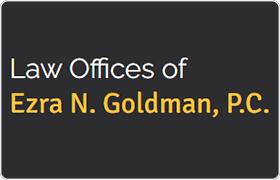Rockwood DUI-DWI Lawyer, Michigan
Sponsored Law Firm
-
 x
x

Click For More Info:
-
Law Offices of Ezra N. Goldman, PC
24725 W 12 Mile Road #110 Southfield, MI 48034» view mapDUI-DWI Juries Love Us!
We pride ourselves on the quality of our service. Resolving your case may require an expertise beyond the law and we are here to help in every aspect.
800-879-4170
Christopher Wayne Quinn II
✓ VERIFIEDFelony, DUI-DWI, Misdemeanor, Traffic, Bankruptcy
Criminal Defense Attorney Handeling Felony and Misdemeanor Cases
At the law offices of Quinn and associates our motto is knowledge, excellence, and determination. The professionals at The Law Offices of Quinn & Asso... (more)
John A. Gyorgy
Power of Attorney, Other, Divorce, DUI-DWI, Collection
Status: In Good Standing Licensed: 47 Years
William Maze
Traffic, Domestic Violence & Neglect, White Collar Crime, DUI-DWI
Status: In Good Standing
Nickolas Darin
Divorce & Family Law, Misdemeanor, Felony, DUI-DWI
Status: In Good Standing Licensed: 12 Years
FREE CONSULTATION
CONTACTJoseph Samuel Dodds
DUI-DWI, Traffic, Criminal, Juvenile Law
Status: In Good Standing Licensed: 11 Years
Brendon Keith Debolski
Criminal, DUI-DWI, Traffic, Felony
Status: In Good Standing Licensed: 17 Years
FREE CONSULTATION
CONTACTJoseph Benjamin Gale
Divorce & Family Law, DUI-DWI, Identity Theft, Constitutional Law
Status: In Good Standing Licensed: 10 Years
 Ezra N. Goldman Southfield, MI
Ezra N. Goldman Southfield, MI Practice AreasExpertise
Practice AreasExpertise

